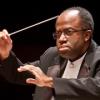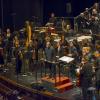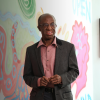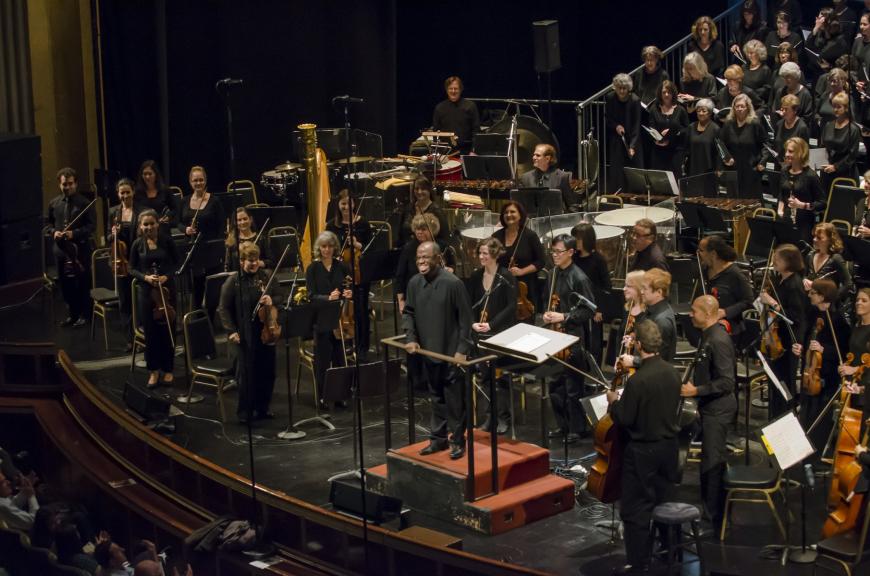
Not a month after Michael Morgan made his debut at Davies Symphony Hall conducting a Rossini overture, Louise Farrenc’s Third Symphony, and an orchestral arrangement of James P. Johnson’s Charleston — such wide-ranging programs populated by composers outside the conventional classical canon were a package deal if you wanted to see Morgan at the helm — the Oakland Symphony’s artistic director and conductor of 30 years died in August 2021.
Few had remained with the organization as long as he had. Naturally, his sudden absence triggered existential shock. “We questioned, missing him so much, whether we could go on,” Executive Director Mieko Hatano says.
Despite the void that his passing left, Morgan’s leadership — which was characterized by people who knew and worked with him as values-based, community-oriented, and energetic — left no doubt among those at the Oakland Symphony about what the identity of the organization moving forward would be. “As much as we were all in the throes of grief and mourning, we worked through it together by deciding: This was his life’s work, and it needs to be ours too, but in a completely different way, because he’s not here anymore,” Hatano says.
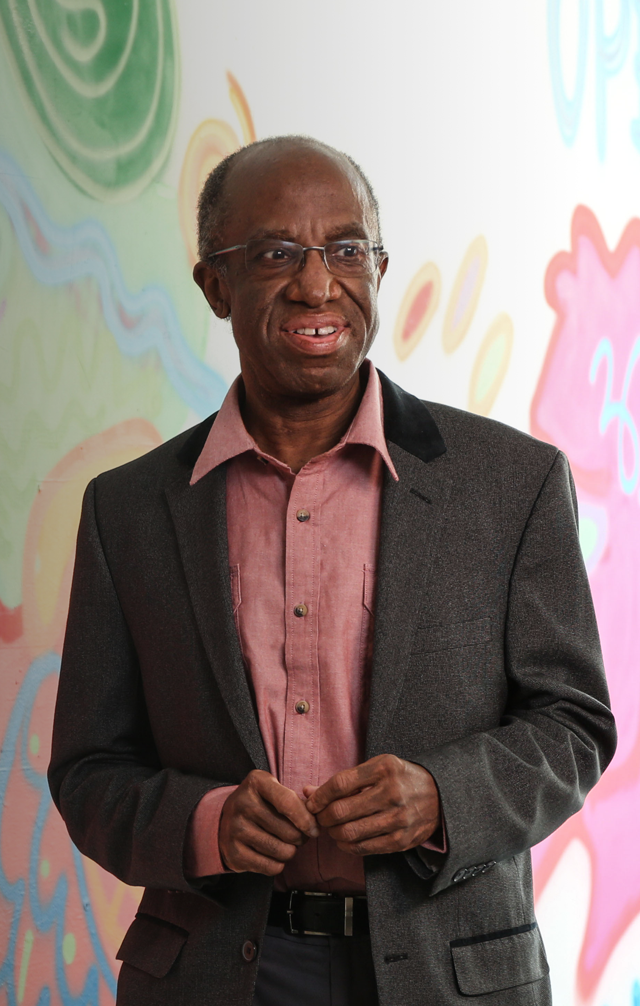
Morgan saw the beauty and power of the symphony orchestra as its ability to play music written by composers from a variety of origins and to be used for a variety of art forms. Long before names like Samuel Coleridge-Taylor, Florence Price, and Amy Beach conspicuously began popping up on orchestra programs across the country after more than a century of neglect, Morgan programmed diverse composers who others in the classical world cast off as too esoteric for non-specialist audiences. (Amy Beach’s “Gaelic” Symphony is actually on the docket as a piece elected by audience’s choice — a testament to Oakland Symphony audiences’ willingness to put faith in composers and pieces Morgan was a proponent of — on Friday, Jan. 21 at the Paramount Theatre.)
Morgan also pursued a steady stream of new commissions, often collaborating with artists working in the Bay Area to tell stories of historical and political significance. Three seasons of new projects had been in the works before Morgan passed, including a world premiere by Bay Area composer Jack Perla, the West Coast premiere of the oratorio Sanctuary Road by Paul Moravec, and the world premiere of Martin Rokeach’s oratorio Bodies on the Line, which recounts the Great Flint Sit-In and the origins of the United Auto Workers union.
Morgan preferred not to see educational programs and time spent in the community as “outreach” but rather as the core of the Oakland Symphony’s mission. Hatano sees this as essential to Morgan’s legacy. “Oakland is such a diverse community, with over 125 language dialects spoken in Oakland alone. Our responsibility as a civic institution for the people is to be inclusive of as many, if not all, of our diverse population.”
Hatano emphasizes that to achieve this inclusivity, the Oakland Symphony must remain committed to expanding access. That involves strategic development, continuing to prioritize the education of youth in the Oakland Unified School District, making sure that anyone can attend a concert if they want to, and collaborating with more local artists across genres. Over a quarter of the Oakland Symphony’s budget is still dedicated to music education.
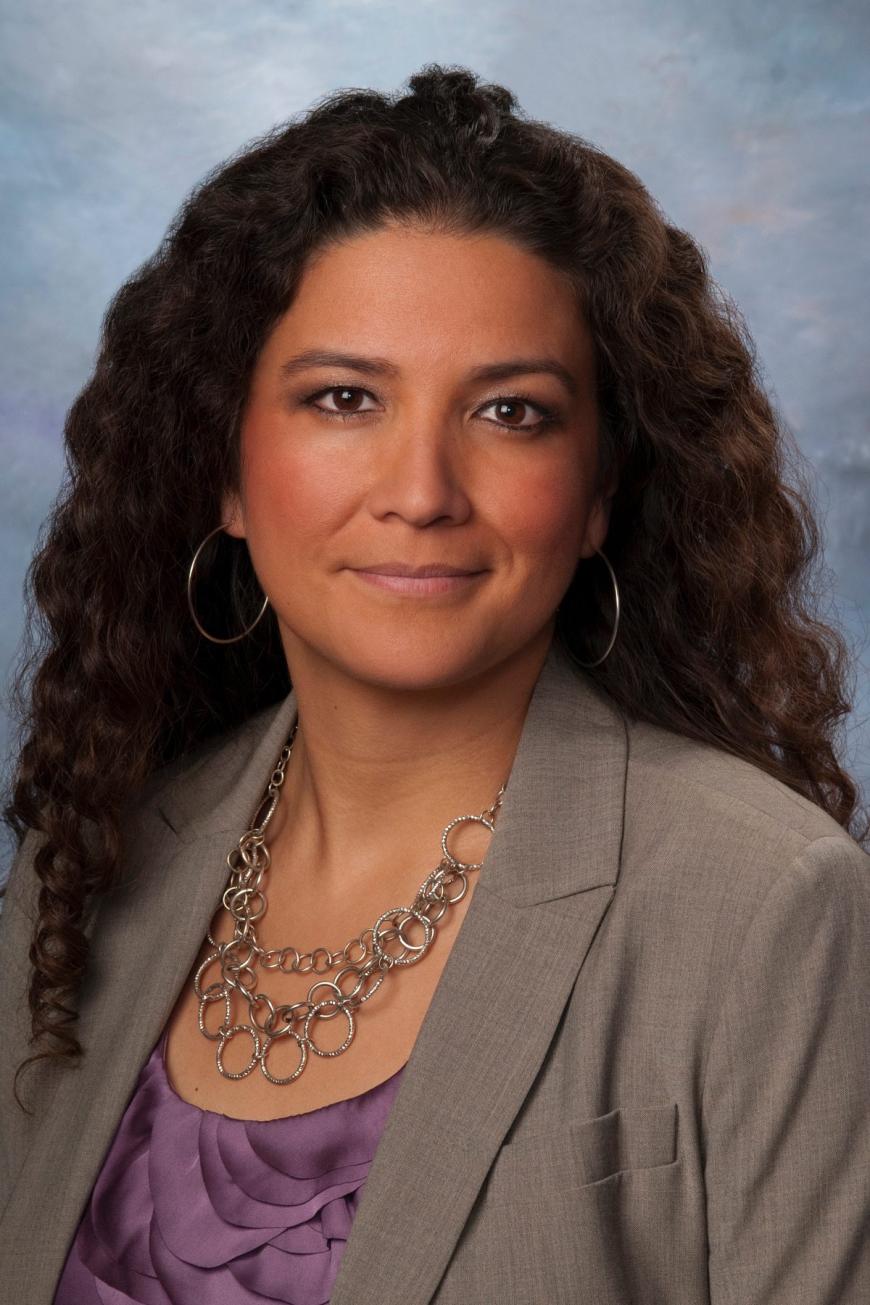
“We believe that music literacy is a responsibility for our education systems and an equitable right for our young people. There are tons of studies about how important music education and literacy are to children’s future success as citizens, young adults, and productive members of our society — those continue to be a major part of our priorities,” Hatano says.
The challenge which the Oakland Symphony now confronts is to stay true to what Morgan stood for in his tenure as director while also paving a new way that feels authentic to a new music director and a new generation. “We’re not looking for the next Michael Morgan. That’s not possible,” Hatano spells out explicitly.
Last year, the board went on retreat to affirm that its goals were aligned and to present them to the organization, including patrons, supporters, ticket buyers, and students. The Oakland Symphony is currently assembling a music director search committee, which will not only play an important role in determining the next music director but also facilitate as much access to the candidates as possible. “How many stakeholders can we get to the table to tell us what they think?” Hatano poses.
The search process is slated to take place over the next two seasons, and the committee will set up processes for feedback from audience members, chorus singers, youth orchestras, and teaching artists. “We want to make sure we’re looking at candidates as whole people — as mentors, educators. That’s what the role of a music director in a city is supposed to be. It’s not art for art’s sake; it’s art for the community’s sake,” Hatano says. “We’ll be looking beyond the podium.
“What Michael did was make space for new voices. And that’s what he would expect from us: to not dwell in the loss of him, to not dwell so much that we can’t make space for the next generation of people who have really great things to say and contribute to our community.”


